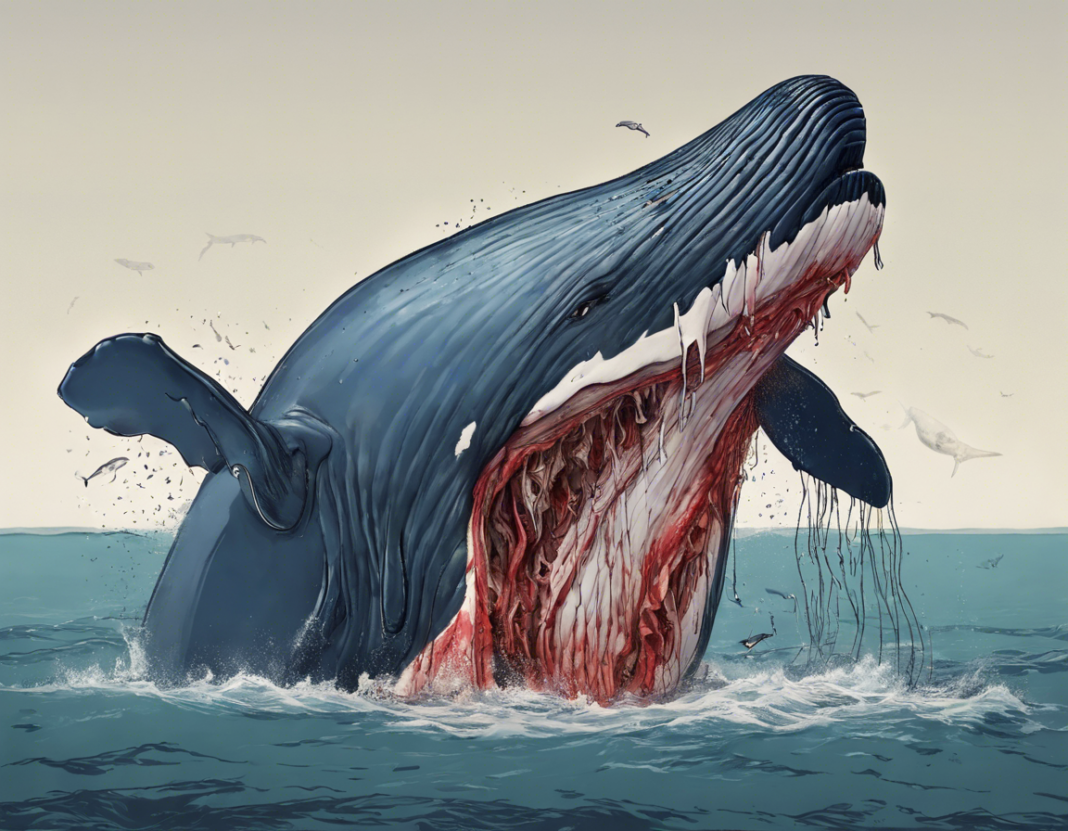The marine world is both majestic and brutal, with tales of survival and tragedy unfolding beneath the waves every day. One such incident that has recently shocked the world is the story of a whale being bitten in half by a predator. While this may seem like a scene from a horror movie, it’s a stark reminder of the harsh realities of nature and the circle of life that governs the ocean.
The Incident
In a remote corner of the ocean, a team of researchers witnessed a gruesome sight – a massive whale being attacked by a predator. The whale, known for its gentle nature and enormous size, stood no chance against the relentless assault of its attacker. In a matter of moments, the predator managed to bite the whale in half, leaving behind a trail of blood and devastation.
The Predator
The identity of the predator responsible for this brutal attack remains a mystery. However, scientists speculate that it could be a great white shark, orca, or even a prehistoric megalodon. These predators are known for their ferocity and powerful jaws, capable of inflicting catastrophic injuries on their prey.
The Circle of Life
While witnessing such a tragedy may evoke feelings of sadness and horror, it’s essential to understand the circle of life that governs the ocean ecosystem. Predators play a crucial role in maintaining population balances and ensuring the health of marine habitats. By culling the weak and sick, predators help strengthen the gene pool of their prey species, leading to a stronger and more resilient population.
Conservation Efforts
Incidents like the whale being bitten in half serve as a reminder of the importance of conservation efforts. As human activities continue to impact the ocean ecosystem, it’s crucial to protect marine species and their habitats. Conservation initiatives such as marine protected areas, sustainable fishing practices, and public awareness campaigns can all contribute to the preservation of marine biodiversity and the delicate balance of the ocean ecosystem.
Conclusion
The incident of a whale being bitten in half by a predator is a stark reminder of the brutal reality of nature. While it may be hard to witness such tragedies, it’s essential to understand the complex ecosystem of the ocean and the role predators play in maintaining its balance. By supporting conservation efforts and raising awareness about the importance of marine biodiversity, we can all contribute to a healthier and more sustainable ocean for future generations.
FAQs:
1. What could have attacked the whale and bitten it in half?
– The predator responsible for attacking the whale could be a great white shark, orca, or even a megalodon.
2. Why is it important to protect marine predators?
– Marine predators play a crucial role in maintaining population balances and ensuring the health of marine habitats.
3. How can conservation initiatives help prevent such incidents in the future?
– Conservation initiatives such as marine protected areas, sustainable fishing practices, and public awareness campaigns can all contribute to the preservation of marine biodiversity.
4. What are some ways individuals can contribute to marine conservation?
– Individuals can support marine conservation by reducing their plastic waste, supporting sustainable seafood choices, and participating in beach cleanups.
5. Are incidents of predator attacks on whales common in the ocean?
– While predator attacks on whales do occur in the ocean, they are not common and are often a rare but natural occurrence in the wild.









